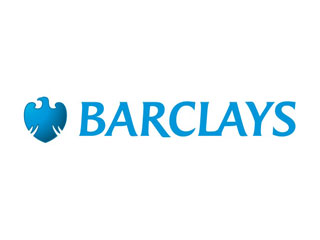Strategy
Barclays' Private Bank Growth "Ahead Of Plan", Says Head

The head of Barclays' private bank and overseas arm talks about the group's strategy across a variety of jurisdictions.
There is a head of steam building up at the private bank and overseas services arm of Barclays since its head, Karen Frank, came into this role at the UK-listed lender about 15 months ago.
The business, which recently promoted senior figures in its Europe, Middle East and Africa team, with new leadership in Switzerland and Monaco, is in that part of the Barclays business dealing with the wealthier end of the high net worth spectrum as well as ultra-high net worth individuals.
Already, the private banking arm has recruited about 100 people to various roles and the hiring process goes on, with the Middle East being an important focus area, Frank told this publication in a recent interview at her offices in the Canary Wharf financial district of London.
Barclays is “ahead of plan” in its business build-out and there are “good growth prospects for 2018 and 2019,” Frank, who originally joined Barclays in 2012, said. Born in the US, Frank started her career in private equity in 1992, working in Goldman Sachs’ Principal Investment Area in New York and London, and continued working in private equity with AEA Investors and Compass Partners International. In 2005, Frank joined Goldman Sachs’ Investment Bank.
The start of 2018 saw a flurry of moves: Gerald Mathieu has taken on the role of chief executive and general manager of Barclays Bank (Suisse). Mathieu, who has been working at the bank in Monaco since 2010, moves to Geneva. He led the private banking team in Monaco. Andrew Mott and Sophie Saurini were appointed to lead the private banking teams in Monaco. As part of the changes, James Buchanan-Michaelson is leaving Barclays. In August last year, Barclays brought in Bjorn Holderbeke, head of investments for the private bank, MENA, joining from ABN AMRO Private Bank.
The following month, Barclays appointed Andre Portelli as head of the strategic solutions group and private assets, joining from UBS. Also in September, Barclays appointed Lisa Francis as CEO of the private bank for the UK and Ireland, coming from Barclays’ investment banking arm. And in October, it named Jean-Christophe Gerard as global head of investments from HSBC. Also in October, Barclays appointed Steve Klemme as head of Middle East in PB&OS. Klemme has more than 30 years’ experience leading Middle East regional teams for global financial institutions. He and his teams are based in London, Dubai and Switzerland.
Ringfencing fits nicely?
Those UK-based banks that are deemed systemically important by
the UK authorities must, by 2019, “ring-fence” their retail arms
from the investment banking, non-domestic and higher-risk
elements, a reform designed to prevent the need for future costly
bank bailouts as occurred in 2008. And while regulations such as
ring-fencing can sometimes be seen as a nuisance by bank
executives, Frank agreed that the regulatory divide actually
proves to be a useful way of mapping out where her part of the
Barclays business should sit.
Barclays looks after clients as their wealth needs evolve, from those starting to build their wealth through HNW individuals, UHNW individuals and family offices and offers them the most appropriate product and service for their circumstances via either the Wealth & Investments or Private Bank team. Wealth & Investments, which is inside the ring fence and headed by Dena Brumpton, serves affluent and HNW clients through offices across the UK, offering personalised banking, credit, investment management and wealth planning services. Private Bank, which is outside of the ring fence, serves HNW, UHNW and Family Office clients in the UK and Internationally. It offers bespoke banking, credit, and investments products and services ranging from standard to sophisticated; as well as a full range of fund and execution platforms and access to Barclays Investment Bank. (WealthBriefing has interviewed Brumpton here.)
The Private Bank & Overseas business has a “global platform”, Frank said, serving clients out of Monaco, Geneva, Dublin, London, India, Zurich, and the Channel Islands. There is a “fly-out” model for covering Asia and Africa – Barclays sold its Asian private bank to Singapore-headquartered OCBC in 2016.
“We need to be focused on delivering the whole of Barclays to our private bank clients, providing them greater access across Barclays International, be that corporate and investment banking or international cards. Our ability to deliver improved growth and returns depends on how successful we are in thinking outside of the private bank for clients and their specific needs. I’m really optimistic about the opportunity ahead because our growth plan is founded on an excellent client base and solid private bank proposition,” she said.
To give an example of the kind of work being done, her business is building a ruble-based overdraft facility for a client; it is looking special purpose vehicles for direct investing and for co-investing; another project involves helping a family office deal with inter-generational issues around the buyout of the founder business. “We are very solutions-led”, Frank said.
Inevitably, Frank is asked about Brexit. “What we are doing right now is contingency planning,” she said.
Turning to some of the specific markets in her group’s patch, Frank said that in Monaco, the departure of some firms from the Principality had left potential opportunities for Barclays having built strong relationships there over the last 10 years. (She did not mention them by name but banks such as HSBC have shuttered operations in Monaco.) The businesses in Geneva and Zurich were important onshore hubs, while London attracts business from regions such as the Middle East.
Barclays has had more than its share of restructuring and change in private banking and wealth management over the past decade. At this stage, however, the firm seems to be determined to push ahead for growth.